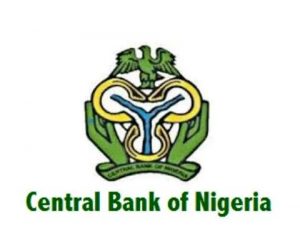Infrastructural development: CBN, AFC, NSIA to raise N15trn
The Governor of Central Bank of Nigeria (CBN), Godwin Emefiele, has disclosed that the CBN, African Finance Corporation (AFC) and Nigerian Sovereign Investment Authority (NSIA) will raise a whopping N15 Trillion to establish an Infrastructure company which will be launched next month.

Emefiele stated this at the 14th annual Chartered Institute of Bankers of Nigeria’s Banking (CIBN) and Finance Conference held in Abuja recently.
The Governor applauded the banking sector for the invaluable roles they played to stimulate the economy and provide essential services to the population while the pandemic lasted in 2020 while speaking at the conference with the theme: “Recovery, Inclusion and Transformation: The role of Banking and Finance”.
The Apex bank Governor said, “We are all aware of the criticality of infrastructure in fostering economic growth. Yet, Nigeria still has a huge gap to fill in this regard. That is why we believe the banking sector must pay attention to providing long term finance for infrastructure development in the country.
“With the decline in revenues due to the federal and state government because of the drop in crude oil prices, alternative ways of funding infrastructure are critical if we are to generate sustained growth of our economy. “In this regard, I am pleased to announce that InfraCorp, the infrastructure company being created by the CBN, African Finance Corporation and the Nigerian Sovereign Investment Authority to raise N15 Trillion will be unveiled in October, 2021.
“InfraCorp would enable the use of mostly private capital to support infrastructure investment that will have a multiplier effect on growth across critical sectors. The purpose of the N15 Trn being raised is to address some of our infrastructure needs, while providing reasonable returns to investors.”
Noting that the Nigerian banking sector has a critical role to play in the economic recovery process which they must play in the area of infrastructure development, Emefiele announced that in the next 12 months, the apex regulatory bank will be establishing the Nigerian International Financial Centre (NIFC).
“The NIFC will act as an international gateway for Capital and investments, driven by technology and payment system infrastructure. This new financial hub will curate local and international banks to make them global champions.
“The NIFC will be a 24/7 Financial centre that will complement London, New York and Singapore financial centers and enable an acceleration of our home grown initiatives such as the Infracorp plc, the N15 Trillion infrastructure fund which we will be launching in October 2021.”
In his welcome address, the President, Chartered Institute of Bankers of Nigeria, Dr. Bayo Olugbemi noted that Nigeria’s economy is gradually recovering from recession of -6 percent in GDP growth in the second quarter of 2020 to a 5 percent growth in the second quarter of 2021, there is still more work to do.
“While this progress is laudable and worthy of celebration, we recognize that there is more work to be done. There are macroeconomic issues which threaten to block the road to prosperity such as high inflation and unemployment rates. There is also work to be done to ensure we meet targets regarding financial inclusion, infrastructural development, SME growth, and female equality to mention a few.
“This conference aims to dissect these numerous issues and generate sustainable solutions. We also aim to x-ray issues surrounding digital transformation and how such innovative solutions can be leveraged to generate sustainable African businesses, an inclusive financial ecosystem, and economic growth,”
CIBN President said. In his goodwill message meanwhile, the governor of Lagos State, Babajide Sanwo-Olu viewed that as the world grapples with the struggles to rebuild and re store disrupted economies; banks have a very significant role to play in the economic recovery “we would like to see”.
He said, “Let me take us back seven or eight decades, to the immediate aftermath of the Second World War. In July 1944, more than forty countries assembled at a now-historic Conference in the United States, to establish the International Monetary Fund (IMF) and the World Bank, as financial institutions to help the world – and Europe – rebuild and recover from the devastation of the war. “The first set of loans issued by the World Bank was to European countries, which bore much of the brunt of the War. Many may not even remember that the World Bank contributed to the reconstruction of Europe even before the emergence of the Marshall Plan in 1948. This is the same kind of transformative role that the Nigerian banking sector is expected to play in the era of Covid-19.”
